The Non-violent Resistance (NVR) Parenting Approach in Haringey, London
By Maite Ferrin, Julien Edwards, Elliot Huggins, Margot Kalmus, Claire Mullarkey, Norma Shannon, Tara Walsh, Aga Winiarczyk, and Claire Wright. Haringey CAMHS, Barnet Enfield and Haringey Mental Health Trust, London, UK
Non Violent Resistance (NVR) is an innovative form of systemic family therapy, which has been developed for aggressive, violent, controlling and self-destructive behaviour in young people. The program has current evidence base in look after children, however there is a recent widening of remit to focus on young people with anxiety and neurodevelopmental disorders (Jakob and Shapiro 2014) based on the notion of ‘over-accommodation’.
NVR Model (courtesy of Michelle Shapiro and Dawn Oliver)
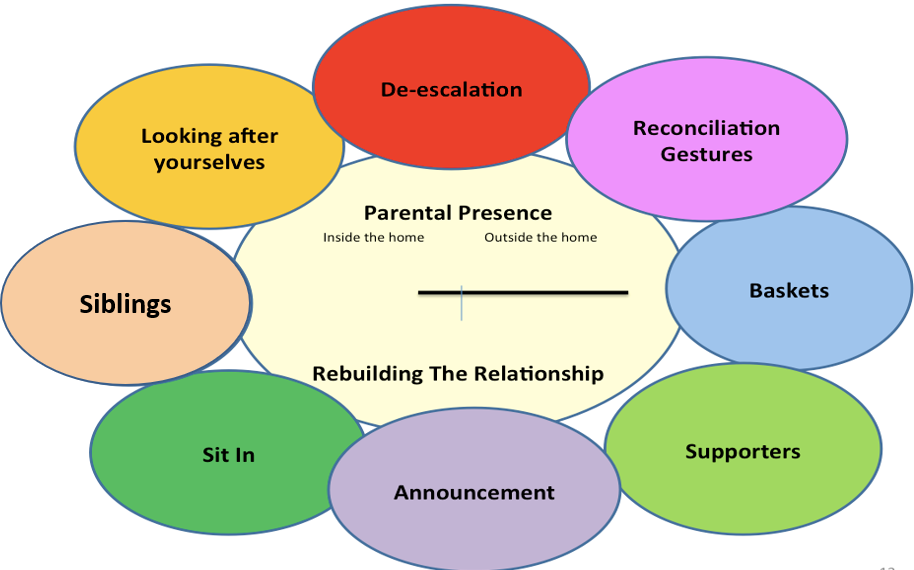
NVR ‘MAP’
In the last year we have been running NVR groups for families whose children attend our service in Haringey CAMHS.
We have used the NVR approach because it: i) Is transdiagnostic, ii) Is suitable for all ages in children and adolescents, iii) can be delivered in large groups, iv) can be used in more severe and complex presentations, as is usually the case in young people attending our service.
This initiative was supported by the vulnerable children’s commissioner who funded an initial training of 34 local CAMHS professionals, in addition to co-facilitation of a parenting group for families by experienced accredited trainers, and allowed four local CAMHS clinicians to complete the full training. Some additional funding was also granted from the trust for supervision and further co-facilitation via the training needs analysis and increased the number of trained CAMHS clinicians to seven.
The group programme that we are delivering consists of:
- 1 opt-in taster session –lasting 2.5 hours
- 8 x 2.5 hours follow-up sessions
- 2 optional half day workshops
- Maintenance groups
We use 4 clinical facilitators and 1 parent facilitator. Referrals have come from across different services, including Generic CAMHS, the Adolescent Outreach Team, CAMHS-Learning Disabilities, Health and Wellbeing Service (HEWS) and across different disciplines.
Since 2018, a total of 3 groups of parents have completed the training. These is the evaluation we have obtained from of our training groups:
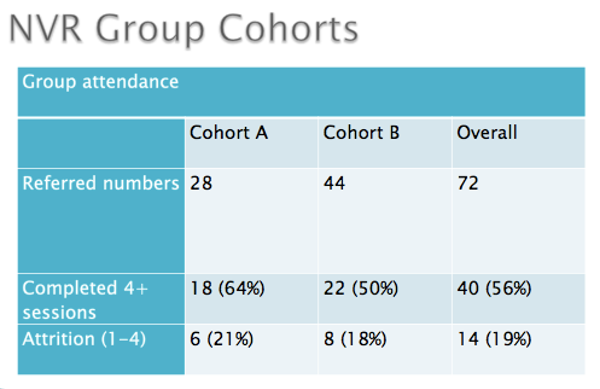
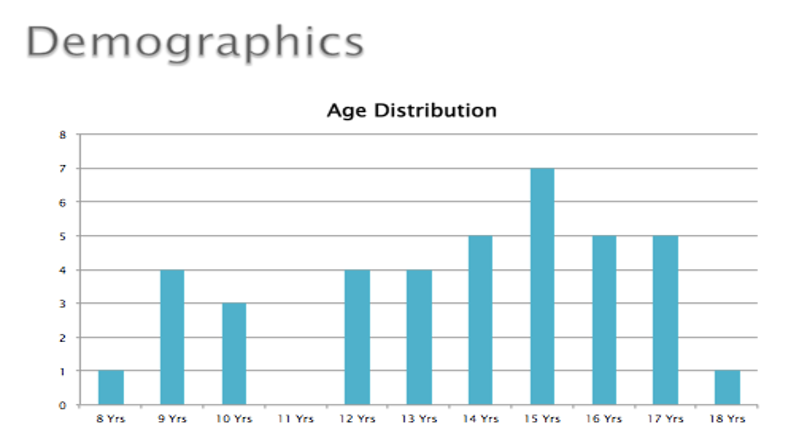
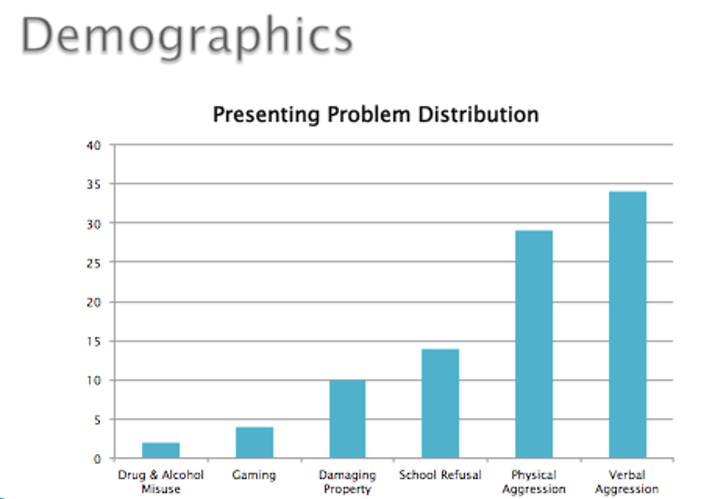
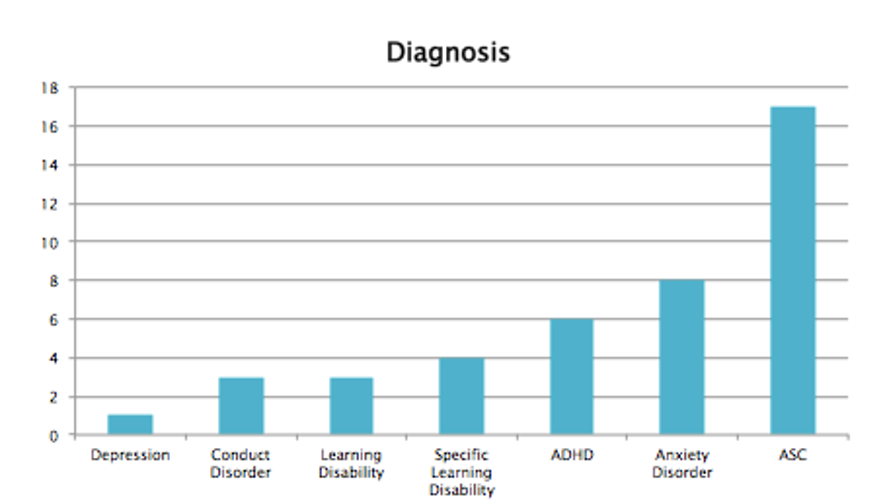
Our outcome measures have focused on parental perception as opposed to the clients themselves. We have used the Addition of Stress Index for Parents of Adolescents (SIPA) and the Brief Parental Self-efficacy Scale score (BPSES) for richer data on parental perception of difficulties and stress. In addition, we have used the Strength and Difficulties Questionnaire (SDQ) for symptoms observed in their children and adolescents.
The numbers of paired measures are still too low to allow analysis, however, a general improvement across the different scales has been observed.
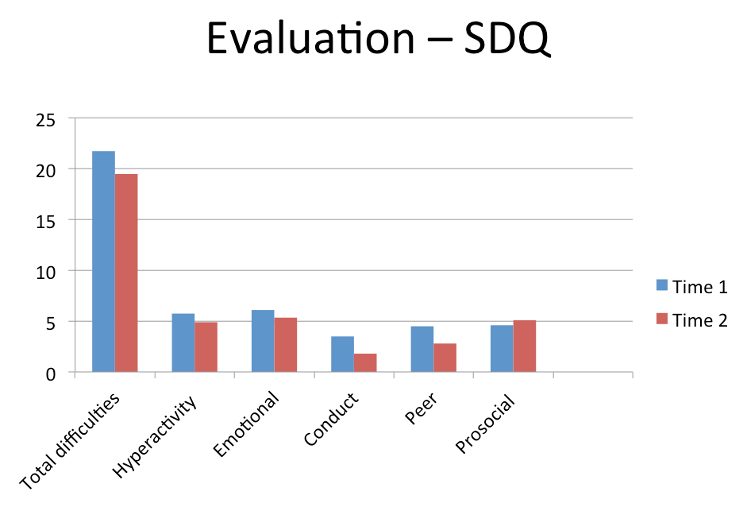
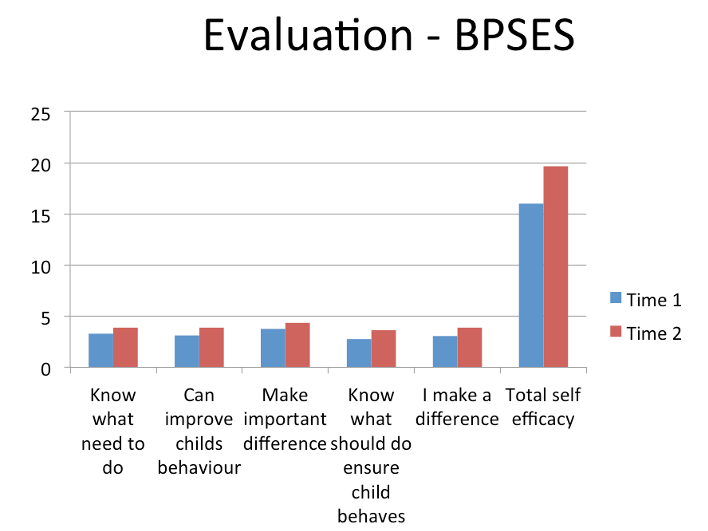
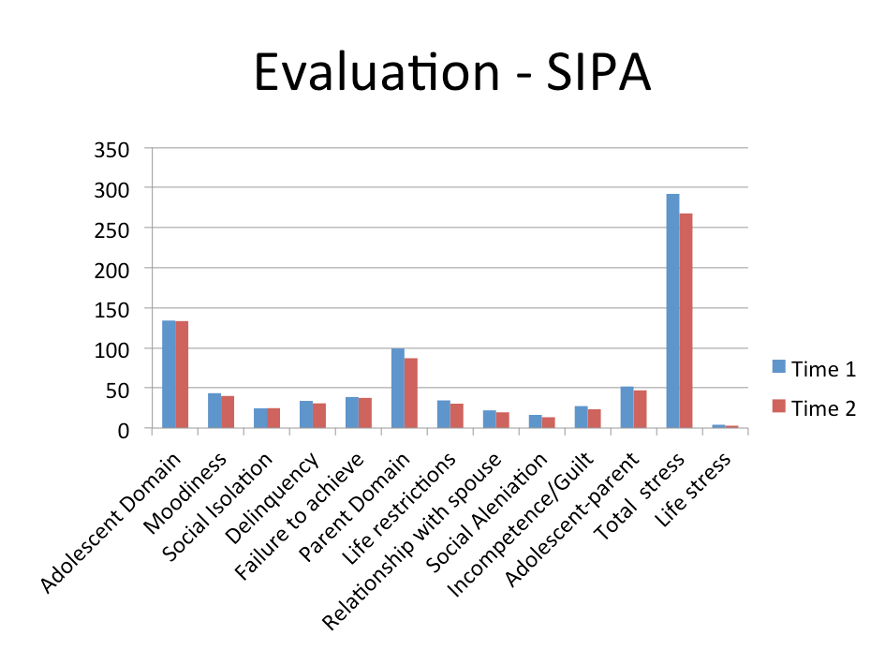
Our future plan is to continue providing NVR groups, at least two groups a year, while using our evaluation to determine on going needs for service. We will use a qualitative evaluation using focus groups, individual follow-ups, and a referrer questionnaire. We will also review our current outcome measures, and might substitute the SIPA and the SDQ for more reflective functioning measures.
For more information on the NVR training:
https://nvrpractitionersconsortium.com/
https://www.partnershipprojectsuk.com/

